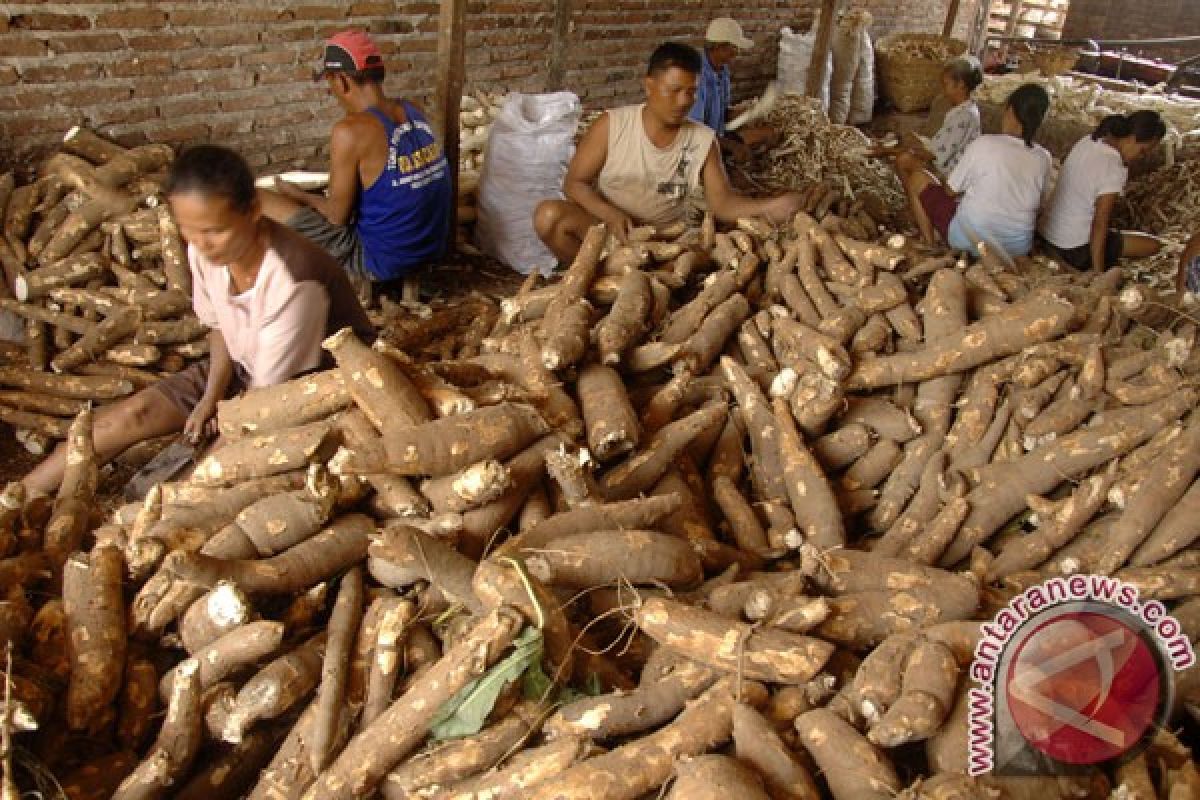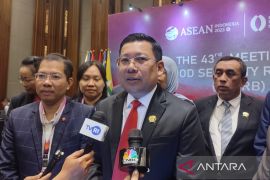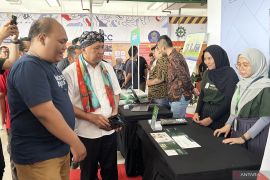"We are making every effort to find how tubers can be grown quickly."Jakarta (ANTARA News) - Various efforts have been made to encourage Indonesian people to consume tubers instead of rice.
Tubers have not been considered staple foods, but in reality they have their own unique taste and nutritional value, and so they can be part of the food diversification programme in Indonesia.
In its effort to support the government`s food diversification programme, the Mekarsari Tourism Park (MTP) in Bogor district, West Java, is conducting research on some tubers.
MTP Production and Research spokesperson AF Margianasari said in Bogor on Tuesday that various types of tubers have been grown over a 500-square-metre land area to support the food diversification programme.
She noted that the research began with the collection of data about various types of tubers found in Java and elsewhere.
Margianasari said tubers have high nutritional value and were the main food source for freedom fighters, adding that people no longer consume tubers and have switched to rice.
"Tubers have high economic value as well, but many people are reluctant to consume them," she pointed out.
Her statements hold water because based on a study at the University of Scranton in Pennsylvania, the United States, potatoes and other root crops can actually prevent high blood pressure.
According to healthylife-articles.blogspot.com, French fries are often considered one of the least healthy foods for the heart and blood vessels, but the study at the University of Scranton indicated that potatoes and other root crops are proven to prevent hypertension.
It is said that tubers, especially potatoes and sweet potatoes, contain a lot of so-called cholinergic compounds that can reduce high blood pressure, which is considered to cause heart attacks.
The study, led by Joe Vinson (PhD), was done by replacing the diet of the participants who generally consume rice or bread with tubers. For a month, the participants ate a fixed portion of bulbs as many as two times a day.
At the end of the month, it was found that participants` blood pressure dropped an average of 3.5 to 4.3 percent.
Compared with participants in the control group who continued to eat rice and bread, the ones who regularly consumed the tubers were found to have a healthier heart.
"Therefore, MTP is trying to cultivate tubers in its laboratory in order to find out if they can be grown quickly," Margianasari explained.
She pointed out that there are a lot of edible tubers available in Indonesia, such as cassava (or yucca root), jicama (or sweet watery root), taro root, water chestnut, sweet potato, potato and yam.
In some parts or Indonesia, cassava, sweet potato, taro and other tubers are staple foods, which are usually eaten boiled or steamed. They are also used as flour thickeners or additional ingredients for noodles, cakes, and pastries.
Cassava is a good source of dietary fibre and contains a high amount of vitamin C and carbohydrates, approximately 120 calories per 1 cup serving.
While jicama is of potato family, according to health.discovery.com, it is a "versatile tuber" that contains a high amount of vitamin C, is low in sodium, and has no fat.
One adult serving of jicama, which is equal to approximately one cup of cubed jicama (120 grams), also contains only 45 calories.
"Three botanists of MTP have been assigned to cultivate some tubers as part of their research. They will declare the results publicly," Margianasari said.
"We are making every effort to find how tubers can be grown quickly," she noted.
Meanwhile, MTP Production and Research Director Ahmad Widodo said the park supported the government`s food diversification programme by conducting studies on other edible fruits as well.
"The MTP this year focused its attention on tubers by doing research in various areas, in addition to preserving rare plants, as part of the food diversification programme," he stated.
President Susilo Bambang Yudhoyono also said the food diversification programme, aimed at reducing Indonesian people`s dependence on rice, should continue to be promoted.
Speaking at a coordination meeting on food security at the Agriculture Ministry office in August, the President said "research on alternative foods must not stop at the laboratory".
He pointed out that studies on alternative food sources had been made for years but the results were only seen at exhibitions.
No wonder some experts said little progress had been made with regard to implementation of the food diversification programme.
Food diversification programme has been promoted for many years across the country but it is still difficult for most Indonesians to change their staple food, which has always been rice.
"It is not easy to implement food diversification in the country," said Prof Nuhfil Hanani, from the University of Brawijaya in Malang, East Java.
"Food diversification in rich countries is much easier, but it would be difficult for low-income people, who make up most of the population here," he noted.
According to Prof Hanani, the food diversification programme can be gradually implemented after Indonesia`s per capita income reaches US$1.8 per day.
In East Nusa Tenggara (NTT) province, for instance, locally grown food products are still not considered staple foods.
Leta Rafael Levis, an agribusiness observer from the University of Nusa Cendana (Undana) in Kupang, said local crops such as corn, tubers and bananas continue to be used only as alternative sources of food.
"Corn and tubers are still not considered to be staple foods because people think they will be going against global trends by consuming them as their main food," he explained.
"People think the world would consider them to be backward or famine-struck if they make locally produced food their staple diet," Rafael said.
The Undana lecturer pointed out that locally produced food products were not consumed as staple foods in any NTT district.
Meanwhile, Pandeglang district head Erwan Kurtubi has encouraged the local community to switch to alternative foods such as cassava, sweet potato, banana, and breadfruit rather than rely merely on rice.
"Gradually we will achieve food diversification. At every opportunity I encourage the people to consume alternative foods rather than just rice," he said in Pandeglang recently.
Erwan also called on the Food Security Board to continue raising awareness about the benefits of food diversification.
"The local community should also grow alternative food crops such as cassava and other tubers, banana, and breadfruit wherever there is vacant land, including around their residential areas," he said.
(Uu.O001/INE/KR-BSR)
Reporter: by Otniel Tamindael
Editor: Priyambodo RH
Copyright © ANTARA 2012












